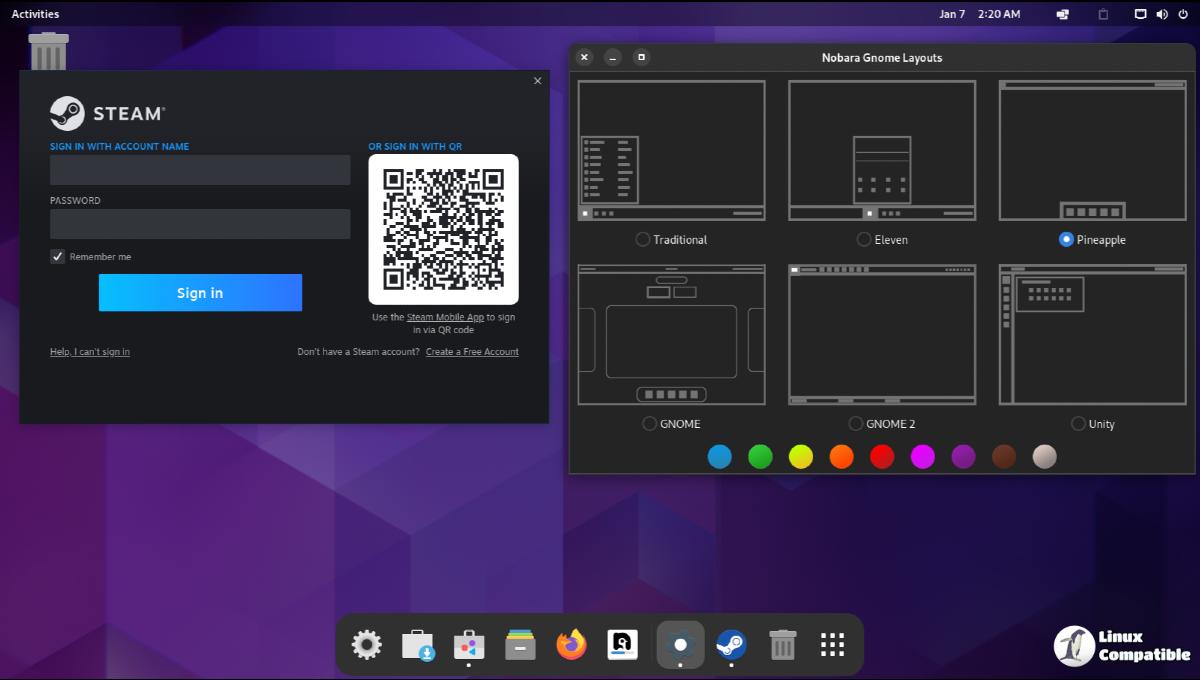Nobara 38 2023-07-27
The Nobara Project, to put it simply, is a modified version of Fedora Linux with user-friendly fixes added to it. Fedora is a very good workstation OS, however, anything involving any kind of 3rd party or proprietary packages is usually absent from a fresh install. A typical point and click user can often struggle with how to get a lot of things working beyond the basic browser and office documents that come with the OS without having to take extra time to search documentation. Some of the important things that are missing from Fedora, especially with regards to gaming include WINE dependencies, obs-studio, 3rd party codec packages such as those for gstreamer, 3rd party drivers such as NVIDIA drivers, and even small package fixes here and there.
This project aims to fix most of those issues and offer a better gaming, streaming, and content creation experience out of the box. More importantly, we want to be more point and click friendly, and avoid the basic user from having to open the terminal. It’s not that the terminal and/or terminal usage are a bad thing by any means, power users are more than welcome to continue with using the terminal, but for new users, point and click ease of use is usually expected.
It should be clarified that this distribution is -NOT- to be considered a ‘Fedora Spin’. We are a completely independent project from Fedora, and there are no Fedora developers or parties directly involved. We use Fedora packages, code, and repositories. That is the extent of it.
Changelog:
– Fixed GPG key error noted here on ISOs:
– Fixed systemd-userdbd.service failure:
https://github.com/systemd/systemd/issues/27028
– Mesa updated to 23.1.4
– Nvidia drivers updated to 535.86.05
GloriousEggroll has released a new Nobara Linux update that includes fixes for the GPG key error on ISOs, as well as systemd-userdbd.service failure and updated Mesa and Nvidia drivers. The Nobara project is a modified version of Fedora Linux that includes gaming-specific modifications such as WINE dependencies, obs-studio, third-party codec packages such as those for gstreamer, third-party drivers such as NVIDIA drivers, and so on.

